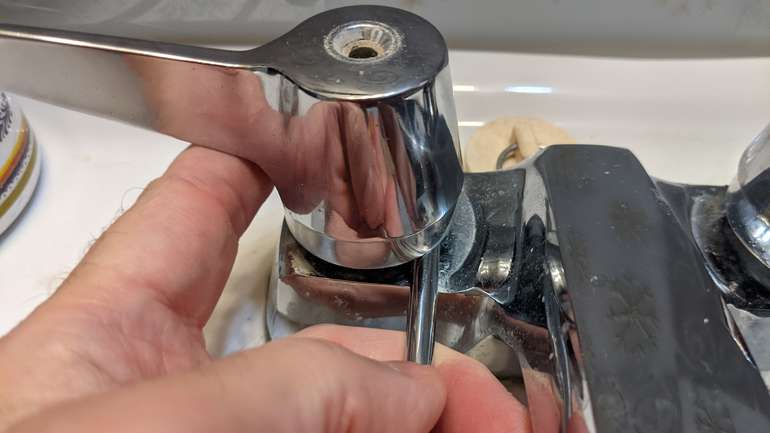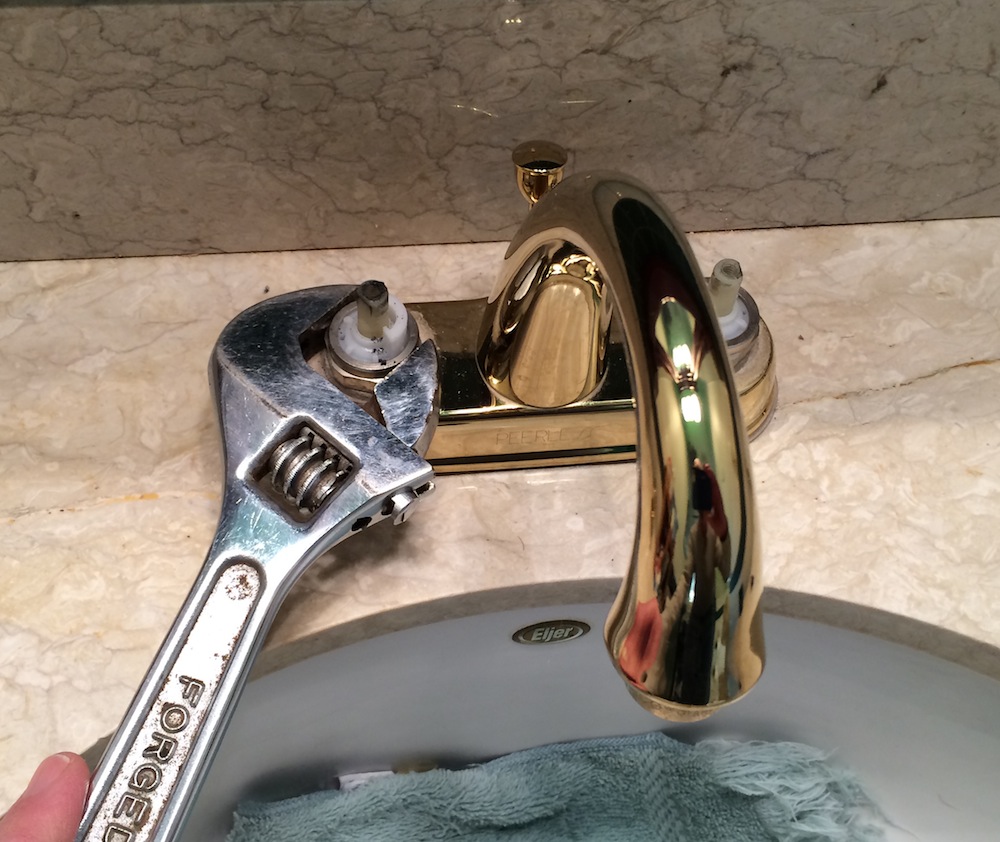How It's Vital to Resolve a Malfunctioning Faucet
How It's Vital to Resolve a Malfunctioning Faucet
Blog Article
We've uncovered this article pertaining to What Causes Leaky Faucets & How To Fix Them directly below on the web and think it made good sense to write about it with you in this article.

Leaking faucets could feel like a minor trouble, yet their effect surpasses just the aggravation of the sound. From drainage to sustaining unnecessary economic prices and health and wellness threats, overlooking a dripping faucet can bring about various consequences. In this article, we'll delve into why it's important to address this common household problem promptly and effectively.
Wastefulness of Water
Environmental Effect
Dripping taps add dramatically to water wastage. According to the Epa (EPA), a solitary faucet dripping at one drip per second can waste more than 3,000 gallons of water annually. This not only stress water sources but likewise impacts ecological communities and wild animals based on them.
Step-by-Step Guide to Taking Care Of a Dripping Tap
Devices Needed
Prior to trying to fix a trickling faucet, gather the needed tools, consisting of an adjustable wrench, screwdrivers, replacement parts (such as washers or cartridges), and plumber's tape.
Common Faucet Issues and Their Solutions
Identify the type of tap and the details concern triggering the drip. Typical problems include worn-out washing machines, corroded valve seats, or malfunctioning O-rings. Refer to producer instructions or on-line tutorials for step-by-step advice on repair work.
Financial Prices
Boosted Water Bills
Past the ecological influence, trickling taps can pump up water expenses substantially. The gathered wastage over time equates into higher energy expenditures, which could have been prevented with prompt fixings.
Possible Building Damages
Moreover, prolonged trickling can lead to harm to fixtures and surface areas bordering the faucet. Water accumulation can create discoloration, deterioration, and also structural problems if left ignored, resulting in additional repair work costs.
Wellness Problems
Mold and Mildew Development
The continuous visibility of moisture from a leaking tap develops a perfect setting for mold and mildew and mildew development. These fungi not just jeopardize interior air quality but likewise posture health risks, particularly for individuals with breathing problems or allergies.
Waterborne Illness
Stationary water in trickling taps can come to be a breeding place for microorganisms and various other pathogens, boosting the threat of waterborne diseases. Impurities such as Legionella germs flourish in stationary water, potentially resulting in major ailments when consumed or breathed in.
DIY vs. Specialist Repair service
Advantages and disadvantages of Do It Yourself Repair Work
While some might attempt to take care of a leaking tap themselves, DIY repairs come with their own set of obstacles. Without correct knowledge and devices, do it yourself efforts can aggravate the problem or lead to insufficient repair services, extending the issue.
Benefits of Working With a Professional Plumber
Hiring an expert plumber guarantees that the underlying root cause of the dripping tap is attended to properly. Plumbing technicians possess the knowledge and equipment to identify and repair faucet problems efficiently, conserving time and lessening the threat of further damage.
Ecological Obligation
Private Contribution to Preservation
Taking duty for taking care of trickling taps aligns with more comprehensive efforts towards water preservation and environmental sustainability. Every person's actions jointly make a substantial effect on preserving priceless sources.
Sustainable Living Practices
By focusing on prompt repair services and embracing water-saving behaviors, people add to sustainable living methods that benefit both existing and future generations.
Preventive Measures
Normal Maintenance Tips
To avoid leaking taps, perform regular upkeep such as cleaning aerators, examining for leaks, and replacing worn-out components without delay. Additionally, consider installing water-saving tools or updating to a lot more efficient fixtures.
Relevance of Prompt Services
Addressing leaking faucets as quickly as they're seen prevents more water wastage and possible damage, ultimately saving both water and cash in the long run.
Influence On Home Value
Perception of Well-Maintained Residential Property
Maintaining a residential or commercial property in good condition, including attending to upkeep problems like dripping taps, improves its viewed value and value amongst potential customers or occupants.
Influence on Resale Worth
Residences with properly maintained plumbing components, including faucets, command greater resale worths in the real estate market. Attending to trickling taps can contribute to a positive impact during residential or commercial property evaluations and arrangements.
Conclusion
Resolving a dripping faucet surpasses mere comfort; it's an essential action toward saving water, minimizing financial costs, and securing wellness and residential or commercial property. Whether with do it yourself repair services or expert aid, acting to deal with leaking faucets is a tiny yet impactful way to promote responsible stewardship of resources and contribute to a much healthier, a lot more lasting future.
How to Fix a Leaky Faucet: Step-by-Step Repair Guide
A leaky faucet may seem like a simple annoyance, but if it's not fixed promptly, that leak could cost hundreds to potentially thousands. From water damage to mold, mildew, and high water bills, even a tiny leak can be catastrophic if left unattended. Damage like this can even affect the overall value of your home, so it's important to take the right approach for leaky faucet repair. You may need the help of a plumber in some cases, but we've got a few tips you can try on how to fix a leaky faucet before calling the pros.
Four Faucet Types
When you're learning how to fix a leaky faucet, the first step is knowing what kind of faucet you're working with! There are four common types.
Cartridge Faucets
Cartridge faucets come in one- or two-handled varieties. In one-handled cartridge faucets, hot and cold water combines in a single cartridge. In the two-handled versions, hot and cold water are controlled separately and mixed in the faucet.
Ball Faucets
Ball faucets have a single lever you push up and down to adjust the pressure and rotate to change the temperature. A slotted metal ball controls the amount of water allowed into the spout.
Compression Washer Faucets
They're the oldest type of faucet, but they're still used in many homes — especially older ones. Compression faucets have two separate handles that, when turned, raise or lower the washer that seals a water valve. This valve stops water from flowing through the faucet when it is turned off.
Disc Faucets
Disc faucets rarely need to be repaired due to their maintenance-free design. The water flow is controlled by two discs — the upper one raises and lowers against a fixed lower disc, creating a watertight seal. If your disc faucet starts leaking, you may need to replace the seals or clean residue buildup from the inlets.
Fixing a Leaky Faucet
Step 1: Turn Off the Water
Whether you're learning how to fix a leaky bathtub faucet or how to fix a leaky kitchen faucet, always turn off the water supply to your working area when you're fixing a leak. The last thing you want is a flood added to your list of things to fix.
Look for the shutoff valves below your sink or around the tub and turn them clockwise to stop the water flow. If your faucet doesn't have shutoff valves, you may need to turn off the water for the whole house. Check to make sure it's off by turning the faucet on. If nothing comes out, you're ready to start the repair.
Step 2: Take Apart the Faucet
How you disassemble your faucet depends on the type of fixture you have. You can use a flathead screwdriver to remove the caps on top of the handle or handles for cartridge and compression faucets. Inside, you should see handle screws. Unscrew these with a screwdriver to remove the handle.
Disc- and ball-style faucets will typically have an inlet screw near the handle, and removing that will reveal the interior of the faucet.
Detach the Valve Stem
For cartridge- and compression-style faucets, you'll see the inner valve stem or cartridge once you remove the faucet handles. If you have a compression faucet, unscrew the brass valve stem. If you have a cartridge faucet, pull out the cartridge. If your cartridge has been in place for a while, it may require some tools or extra force to remove it due to mineral deposits.
Examine and Replace Parts
Once you've removed the parts, check them out to confirm what needs to be replaced. You may see corroded rubber washers, O-rings, stems, or cartridges. On a ball-style faucet, check the seats and springs for damage.
If you need to repair a leaky disc faucet, check the inlet and seals on the lower disc.
Once you determine what parts must be replaced, visit your local hardware store. Bring the damaged parts with you to ensure you can purchase the correct components to replace them.
Clean Valves and Faucet Cavity
If you've removed a stem or cartridge, you may notice mineral buildup in the faucet's threads. Use white vinegar to clean the valve seat by soaking it for a few minutes, then scrub it away with a soft toothbrush and rinse with warm water. You can also clean the interior of the faucet in the same way.
Reassemble the Faucet
Once your faucet is cleaned and the required parts have been replaced, it's time to reassemble it. Put the pieces back together and slowly turn the water supply back on. Doing this slowly is crucial because too much initial water pressure can damage the new hardware you've just installed.
https://homewarranty.firstam.com/blog/how-to-fix-leaky-faucet

We had been made aware of that write-up about from a good friend on a different web address. Sharing is nice. One never knows, you may be helping someone out. Many thanks for your time. Come back soon.
Report this page